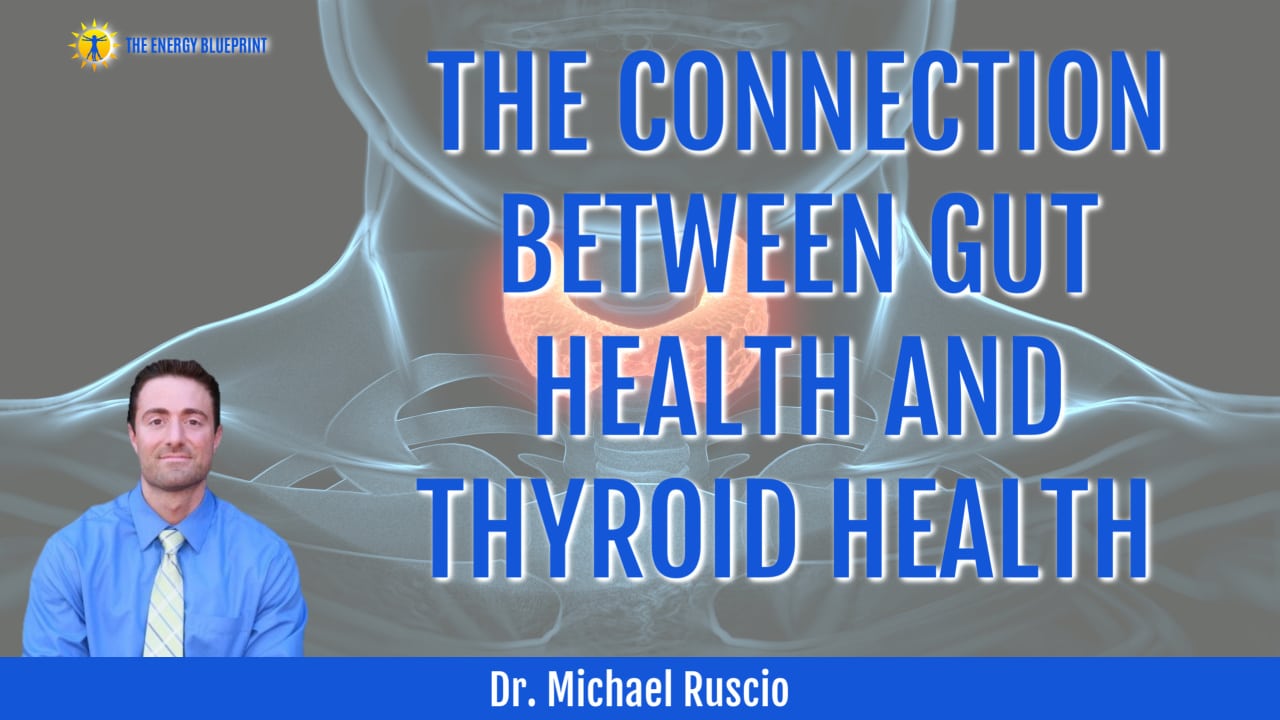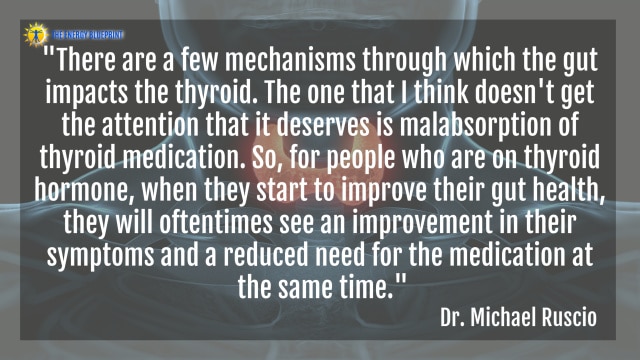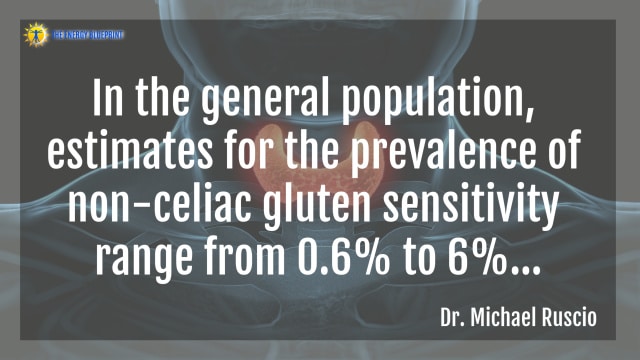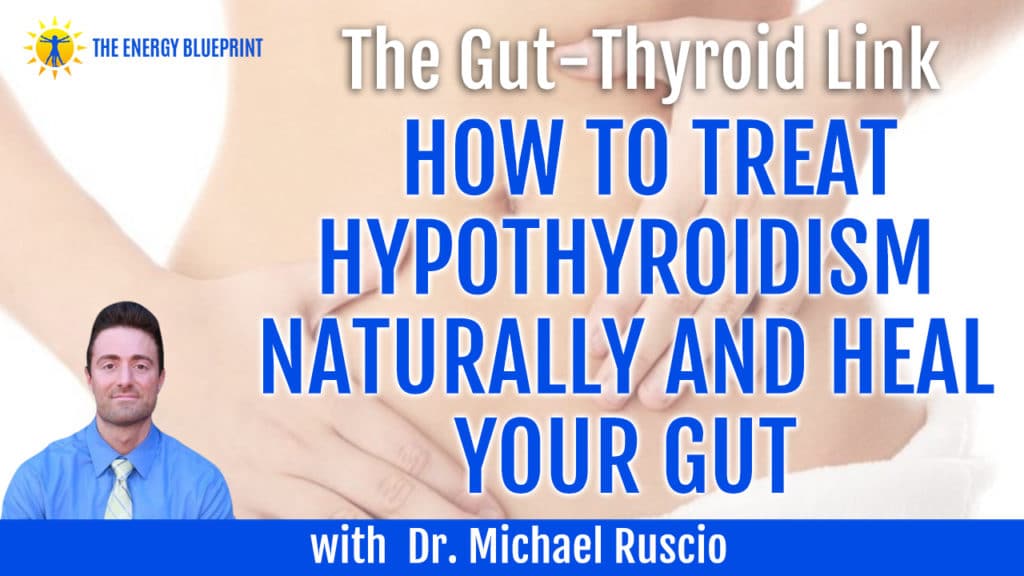
Dr. Michael Ruscio is Doctor of Chiropractic, clinical researcher, expert on gut health, and author of the bestseller Healthy Gut, Healthy You.
This article is derived from the podcast The Gut-Thyroid Link: How To Treat Hypothyroidism Naturally And Heal Your Gut. Listen to it here.
How Gut Health Impacts Thyroid Health

When it comes to thyroid problems, there is one factor which is often overlooked: the gut. Thyroid hormones are absorbed in the small intestine. This means that if you have dysbiosis in the small intestine and are on thyroid medication, you’re likely not absorbing the medication properly.
Indeed, many thyroid patients find that they need to lower their dose of thyroid medication as they improve their gut health, further indicating that their problems are due to malabsorption.
Furthermore, poor gut health could play a fundamental role in the development of hypothyroidism. There are three main ways this could happen:
- Malabsorption of medication
- Increased thyroid autoimmunity
- Mistaking symptoms of poor gut health for thyroid problems
Regarding point two, some studies have shown that improving gut health can combat autoimmunity. As Dr. Ruscio explains: “One Polish study looked at three groups – healthy controls, those with diarrheal SIBO, those with constipative SIBO—and found that the TPO antibodies, one of the measures of thyroid autoimmunity, was normal in the control group, was slightly elevated in the diarrheal group, and even more elevated in the constipation group.”
If you suffer from thyroid problems, optimizing your gut health may help you.
Key Point: The small intestine is essential for absorption of thyroid medication. If the small intestine is dysbiotic, this could lead to an increase in thyroid antibodies and malabsorption of thyroid medication. If you have symptoms of thyroid problems and thyroid medications aren’t effective, optimizing gut health may very well be an option.
The Link between Gluten Sensitivity and Thyroid Issues

There is a lot of talk in the health sphere that gluten is a key factor in gut permeability and in the generation of autoimmunity. But what does the science say?
One study of 12,225 patients found that the number of people who suffered from non-celiac gluten sensitivity was 0.63 – 6%, of which only 14% suffered from autoimmunity. A mere 9% of that 14% was thyroid related, less than 1% of all the patients observed.
In other words, the general narrative that everyone should avoid gluten is exaggerated at best and lacks scientific evidence.
Key Point: Studies show that the causal effect of gluten sensitivities on thyroid issues is widely exaggerated and not not congruent with the overall body of evidence.
Summary
There is a strong link between the gut and thyroid. A dysfunctional gut can show up as thyroid problems as well as cause malabsorption of thyroid medication. Furthermore, science shows no link between gluten and autoimmunity. Although there is a subset of people who suffer from non-celiac gluten sensitivity and who also have thyroid issues, it is a miniscule and negligible number. Even if you have thyroid autoimmunity, you probably shouldn’t stress over gluten consumption.
If you suffer from thyroid issues, you may want to get checked for dysbiosis in the small intestine and focus on healing your gut.





